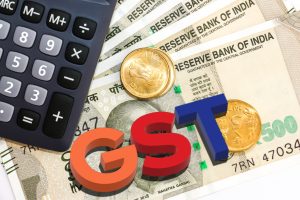 India will not overhaul its Goods and Services Tax (GST) regime in the next fiscal year, a senior official said on Monday, delaying a move it has been considering for more than a year to simplify its tax structure and reduce the burden on consumers.
India will not overhaul its Goods and Services Tax (GST) regime in the next fiscal year, a senior official said on Monday, delaying a move it has been considering for more than a year to simplify its tax structure and reduce the burden on consumers.
The country currently has five tax rates for GST, which was introduced in 2017, bringing numerous state taxes under one umbrella. They range from 0% to 28%.
In 2021, the government considered overhauling the tax by merging two of the tax rates, and lowering the levy on a host of items. Some have criticised the five-year old regime for having too many tiers.
“Right now, we are just looking to maintain stability (in tax rates), a stable tax regime. Minor changes will always be there… major taxation change like merger of tax rates, we are not contemplating in 2023/24,” Revenue Secretary Sanjay Malhotra said in an interview.
Malhotra said the government would ultimately want to have fewer tax bands but did not give a timeline.
“We would want fewer tax rates, fewer disputes…that is certainly the goal to have fewer rates… and there may be scope to reduce tax slabs… that may be done in some point in time, but not now,” said Malhotra.
The Indian government is also looking to simplify its taxation structure for custom duty, which falls outside the GST regime, by having fewer rates.
“Going forward, we would like to have fewer customs tax rates as well,” Malhotra said Monday.
Finance Minister Nirmala Sitharaman, who presented the 2023/24 budget last week, projected 12% growth in net GST collection for the federal government. For 2022/23, the government aims to collect 8.54 trillion Indian rupees ($103.20 billion).
The government also aims to collect 250 billion rupees through a windfall tax on petrol, turbine fuel and diesel that was imposed from July 2022.
The government took away a 5% concessional tax rate for foreign portfolio investors (FPIs) on interest income from debt securities, but Malhotra said investors will not be adversely affected by the move.
India has signed tax treaties with most countries, which require FPIs to pay 10% tax on interest earned from government securities and corporate and foreign currency bonds, as against 5% tax applicable earlier, he said.
“Giving a lower tax rate will not help many of the funds because they would be required to pay taxes in their own countries. And to the extent of taxes they pay in India, they get a higher setoff in their country,” he said.
Source: https://www.reuters.com/world/india/india-will-not-merge-gst-tax-rates-202324-government-official-2023-02-06/


